CMS Director Prof Gretta Pecl presented during a public panel session at AMSA 2025 conference in Melbourne (July 2025), called "Why Oceans Matter". The session was recorded and broadcast by RRR.
Listen here: https://www.rrr.org.au/shared/broadcast-episode/34716/1603000/3600000
CMS Director Prof Gretta Pecl and CMS member Dr Olivia Dove recently featured in a COSMOS Magazine article about eco-distress, and how climate change is affecting scientists' mental health.
You can access the online version at this link - https://cosmosmagazine.com/people/social-sciences/great-barrier-grief-scientists-face-mental-health-battle/
Or download a copy of the print version here – https://denisecullen.com.au/wp-content/uploads/2025/08/Great-Barrier-Grief-Cosmos-issue-107-June-2025.pdf
CMS Director Prof Gretta Pecl and CMS member Dr Scott Bennett were recently featured in a news article by Yahoo News, about the current algal bloom that started in South Australia.
They warn that the algal bloom in South Australia is not an isolated event, but part of a broader problem impacting the entire nation.
Read the article here: https://au.news.yahoo.com/warning-nowhere-is-safe-as-australias-500km-toxic-problem-spreads-060002232.html
This news article discusses CMS student Andrew Sullivan's PhD research, investigating how the international High-Level Panel for a Sustainable Ocean Economy is influencing Australian marine management.
Read the article here: https://www.frdc.com.au/novel-governance-changing-ocean
Ocean literacy is an understanding of the ocean’s influence on us and our influence on the ocean – and it empowers communities to communicate meaningfully about the ocean and make informed decisions about the ocean and its resources.
This need for ocean literacy is increasing in Australia and abroad as our oceans are changing, and researchers are calling for a national strategy to safeguard the ocean and its ecosystems.
In a study published in Oceans and Society researchers from University of Tasmania’s Centre for Marine Socioecology (CMS) and Institute for Marine and Antarctic Studies (IMAS), with colleagues from across Australia, outline a roadmap to advance ocean literacy for ocean sustainability.
Read more from the UTAS News Room here: Creating connections: ocean literacy for ocean sustainability | University of Tasmania
Read the article here:
Kelly R, Francis P, Shellock RJ, Andrews S, Arthur B, Birkmanis CA, Breidahl H, Buxton L, Chambers J, Church E, Condie C, Croft F, Freitas C, Hurley S, Jateff E, Le Busque B, Marshall J, O’Brien A, Pecl GT, Torre-Williams L, Volzke S & Waters Y (2025). Ocean Literacy for Ocean Sustainability: Reflections From Australia. Ocean and Society, 2. https://doi.org/10.17645/oas.9797
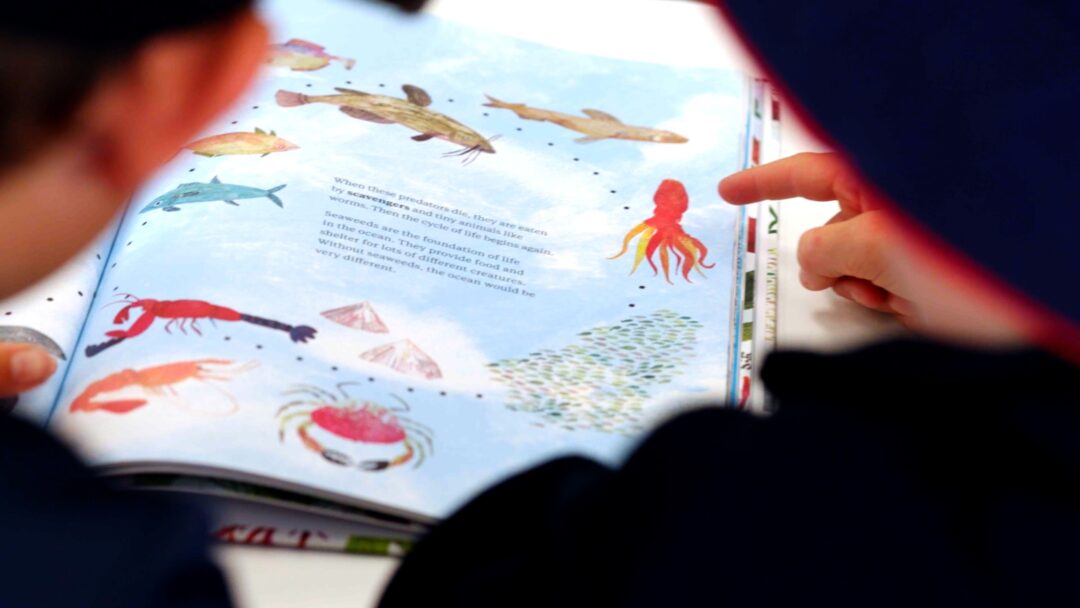
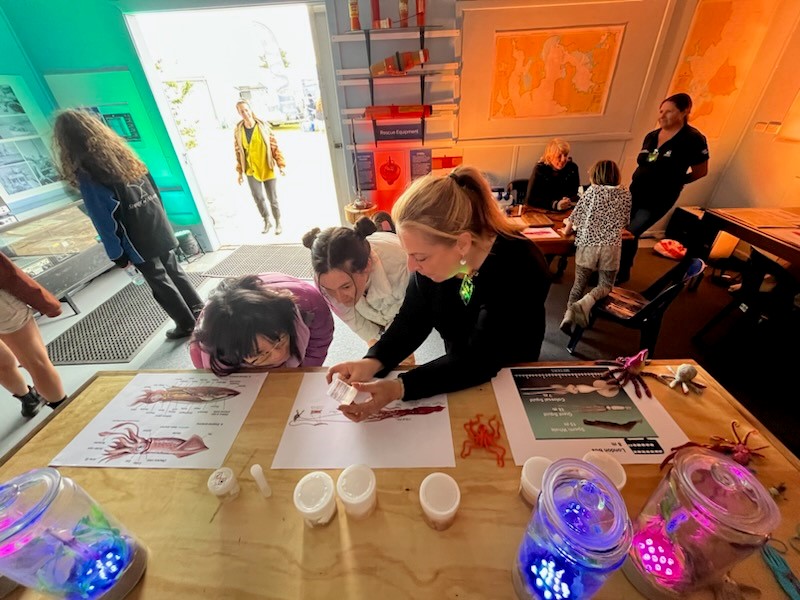
CMS Director Prof Gretta Pecl recently co-authored a correspondence published in Nature Ecology & Evolution, titled "Six actions for ecologists in times of planetary crisis".
As the title suggests, the article calls on the ecological community to consider six actions that could drive meaningful change.
Read the article here:
Pettorelli N, Gaston KJ, Barlow J, Araujo MB, Bustamante M, Chown SL, Diele-Viegas LM, Laurance WF, Lees AC, Melo FPL, Milner-Gulland EJ, Pecl GT & Sousa-Pinto I (2025). Six actions for ecologists in times of planetary crisis. Nature Ecology & Evolution. https://doi.org/10.1038/s41559-025-02759-8
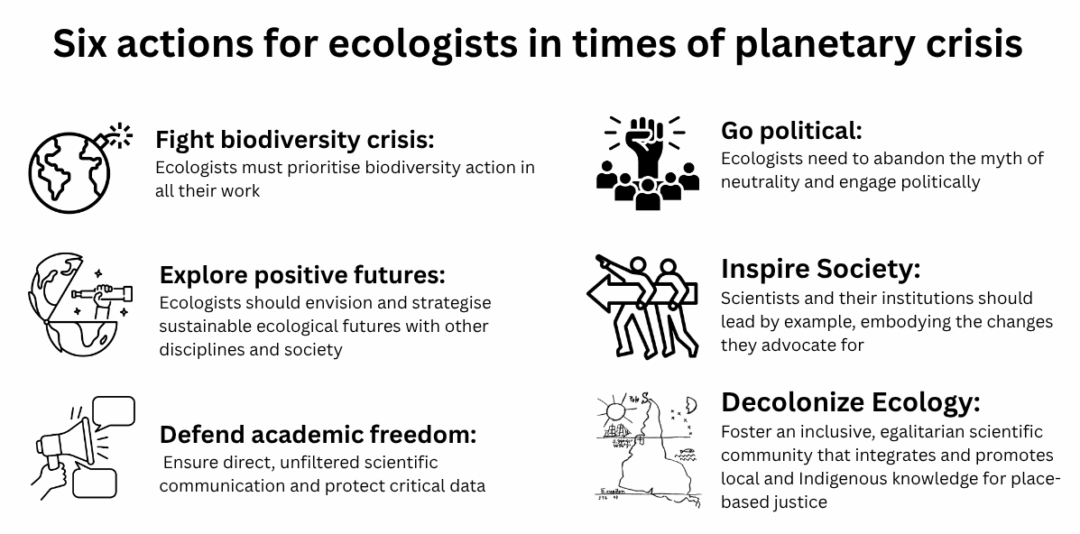
CMS Member Dean Greeno recently wrote an article for Garland Magazine titled “A Driftwood Testament”, about his life, artwork, and continuing his ancestor’s practice of using dead trees as memorials.
Excerpt: “In ancient times, our ancestors would place the dead in hollow trees, covering them so their essences could merge with the tree and pass on knowledge and spirit. Sculpting with driftwood, in a way, is an extension of that practice. Pieces of trees that have grown, lived, and died travel through the rivers, creeks, and oceans. When I gather these pieces, I am continuing the story they began. But to do so takes a trained eye.”
Dean recently won the Telstra NATSIAA People’s Choice Award for his artwork “tunapri milaythina muka, to know Sea Country through making”
Article link: https://garlandmag.com/article/the-driftwood-story/
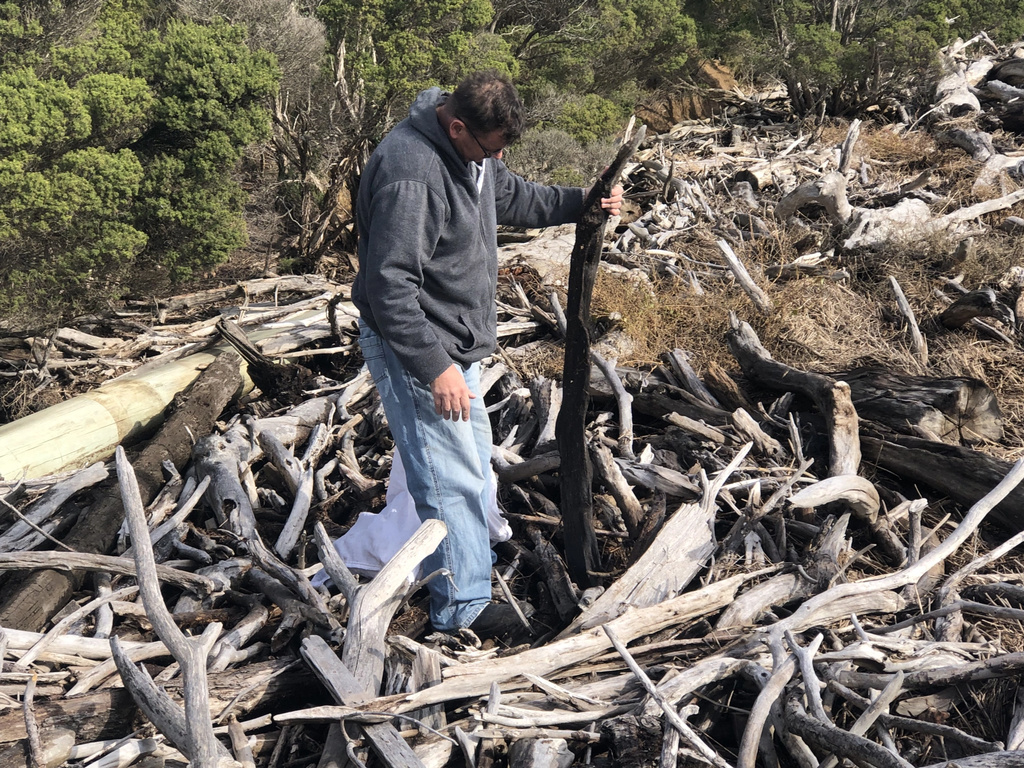
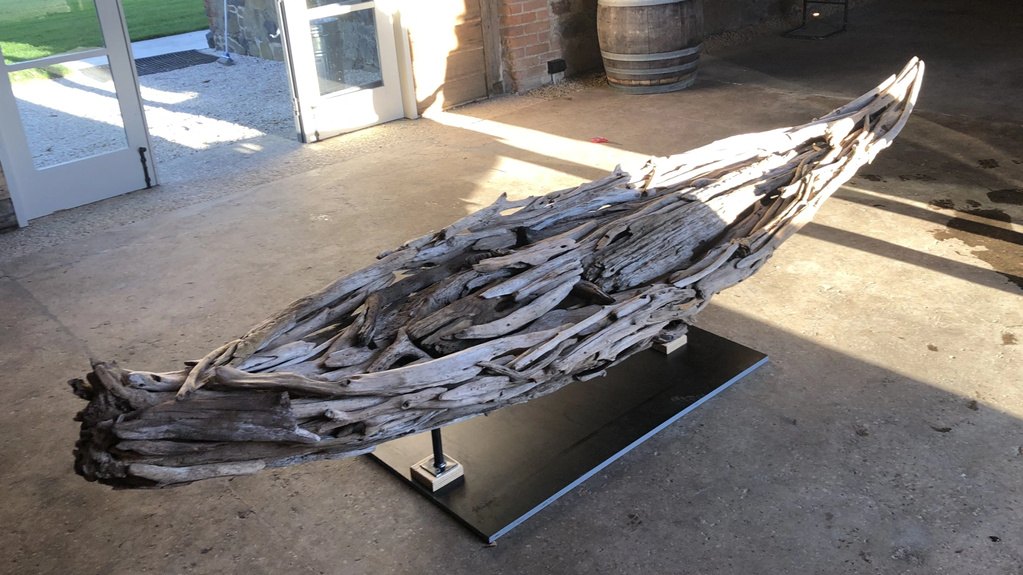
Each year the Australian Marine Sciences Association proudly presents awards to individuals recognising outstanding contributions to marine science in Australia.
Mibu Fischer, won the AMSA 2025 Melissa George Excellence in Sea Country Award, which recognises the outstanding contribution or leadership potential of an Indigenous marine scientist, ranger, communicator, or educator to the advancement of marine science and knowledge in Australia.
Dr Scott Bennett, won the AMSA 2025 Emerging Leader in Marine Science Award, in recognition of their outstanding research and academic achievements in marine science and the translation of their research for engagement outside of academia and mentoring of other young scientists.
Read more here: https://www.amsa.asn.au/amsa-home/awards/
CMS student Debbi Delaney was interviewed for a recent article “Unique King Island industry under the microscope” by Tasmanian Country, published on 31 May 2025.
The interview describes how Deb's work could prove vital for understanding the future of the island’s marine plant fishery in the face of environmental change and shifting global markets.
Read the article here: https://www.tasmaniancountry.com/newspaper/tasmanian-country/unique-king-island-industry-under-microscope
A new paper co-authored by CMS Director Prof Gretta Pecl has been released, as an output from a workshop in Florida in 2023, after the third international Species on the Move conference (a conference series Gretta started in Hobart in 2016). Following the 2023 conference, a focused workshop sparked a key realization: while we’ve long known species are on the move, we’ve vastly underappreciated how multidimensional that movement might be.
To capture this complexity, the authors argue for a paradigm shift: one that recognizes that species are moving not just in one direction, but across multiple dimensions of space, time, and thermal scale. This recent synthesis outlines a conceptual framework that reflects this – highlighting how species can and do respond to directional climate change along intertwined spatial and temporal gradients, from the macro to the micro.
The next Species on the Move conference will be held in Taiwan in 2026.
Read more here: Reimagining species on the move | The 3D lab
See the publication here:
Fredston AL, Tingley MW, Neate-Clegg MHC, Evans LJ, Antao LH, Ban NC, Chen IC, Chen YW, Comte L, Edwards DP, Evengard B, Fadrique B, Falkeis SH, Guralnick R, Klinges DH, Lembrechts JJ, Lenoir J, Palacios-Abrantes J, Pauchard A, Pecl GT, Pinsky ML, Senior RA, Smith JE, Soifer LG, Sunday JM, Tape KD, Washam P & Scheffers BR (2025). Reimagining species on the move across space and time. Trends in Ecology & Evolution. https://doi.org/10.1016/j.tree.2025.03.015